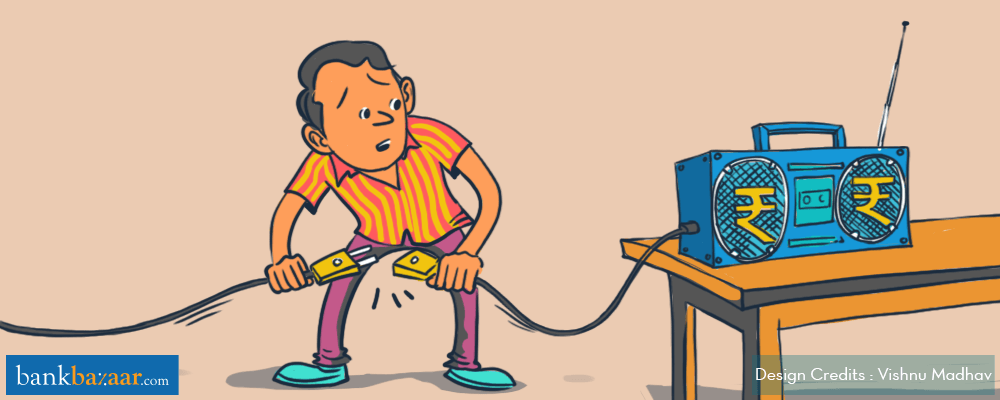Did you know that the Government recently made it mandatory to link your bank account with your Aadhaar by December 31st, 2017? But, what happens if you don’t? Read on to find out more.
Over the last couple of months, you’ve probably been flooded with SMSes from your bank urging you to link your bank account with your Aadhaar.
If you aren’t exactly sure why this is happening, here’s some news for you. The government recently mandated that all banks should link their customers’ accounts with their respective Aadhaars by December 31st, 2017.
For those of you who have already done this, pay no heed to the constant barrage of SMSes on your phone. However, if you still haven’t linked your bank account to your Aadhaar, here’s what you can expect to happen if you don’t do so by the stipulated date.
Additional Reading: How To Link Your Aadhaar And PAN To File IT Returns
What does the new rule say?
Through an amendment of The Prevention of Money Laundering (Maintenance of Records) Rules, 2005, dated June 1st, 2017, the government has mandated the following:
- New bank accounts opened post this date need to be linked with Aadhaar at the time of opening the account or within six months from the date of opening the bank account. Here’s how you can open a new Savings Bank Account.
- Existing bank accounts have to be linked with Aadhaar by December 31st, 2017.
- Accounts failing to comply with these norms will become non-operational. This means that prior to this deadline, no bank can make your account non-operational due to non-compliance and that you still have time until December 31st, 2017 to do the needful.
Following this directive, banks are sending timely reminders to their customers to link their accounts to their Aadhaars. To avoid any confusion in the near future, they will cease to open new accounts without Aadhaar.
BB Tip – If you’re unsure about which Savings Account is best suited for you, take a look at some of the best Savings Accounts in India right here.
Additional Reading: 7 Simple Reasons Why Fixed Deposits Are Better Than Savings Accounts
What happens if you don’t comply?
As mentioned previously, failure to link your account with your Aadhaar by December 31st, 2017 will force your bank to render your account inoperable.
This means that you won’t be able to withdraw cash from your bank account in times of need or even swipe your Debit Card at retail outlets. In other words, you could become monetarily paralysed.
But, even if you fail to comply with this directive for whatever reason, don’t lose hope. You can still reactivate your account by submitting your PAN and Aadhaar numbers as well as other relevant documents stipulated by your bank.
Additional Reading: How To Link Aadhaar To Your Bank Account
Breather for small accounts
Although this directive is applicable for all bank accounts, there some bank accounts that have been exempted from this rule. These are small accounts that can be opened without Aadhaar.
So, what exactly is a ‘small account’?
As per RBI rules, a ‘small account’ is a Savings Account that can be opened by any individual above 18 years of age who does not have officially valid KYC documents. A small account typically has the following characteristics:
- The aggregate of all credits in a financial year does not exceed Rs 1 lakh
- The aggregate of all withdrawals and transfers in a month does not exceed Rs 10, 000
- The balance at any point of time does not exceed Rs 50,000.
Small accounts are primarily intended for poorer sections of the society to encourage the habit of savings among them. Hence, the KYC requirement for these accounts is also relaxed.
Submission of a self-attested photograph and affixation of the individual’s signature/thumb impression on the form for opening the account before the authorised officer of the bank is all it takes to open the account.
Additional Reading: Aadhaar Based e-KYC: All You Need To Know
Does the Supreme Court ruling on privacy apply to this directive?
Many are still unclear about whether these new rules will still hold true after the Supreme Court’s recent judgement that made the Right to Privacy a fundamental right. Currently, there is speculation that linking one’s PAN and bank account numbers with Aadhaar will violate this right.
However, that the Supreme Court’s ruling has said nothing that establishes the Aadhaar as constitutionally invalid or the right to privacy as an absolute one. In fact, the Supreme Court has clearly stated that Aadhaar is mandatory.
So, the amended rules will still apply until the time the Supreme Court clearly establishes that linking Aadhaar to bank accounts is mandatory.
Additional Reading: Correct Errors In PAN/Aadhaar Online
In any case, your bank account is your financial lifeline, so take 15 minutes out of your day and link your bank account with that 12-digit magic number.